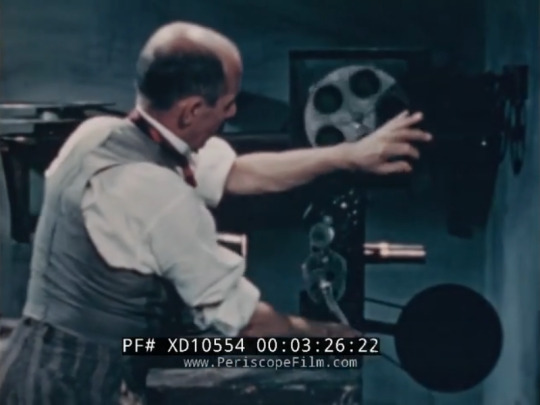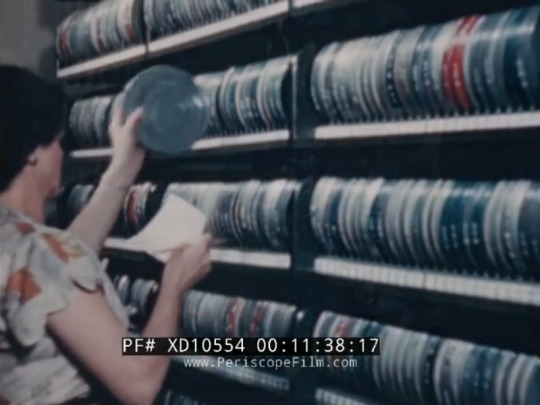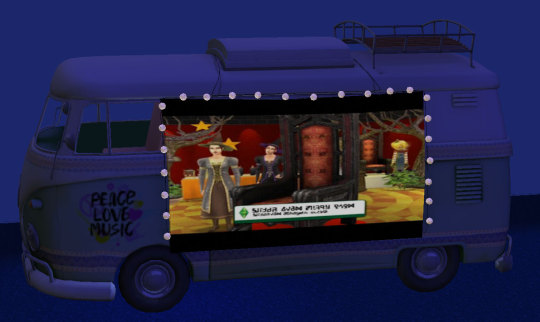#Cinema Projector
Explore tagged Tumblr posts
Photo


Gone Girl (2014) Dir. David Fincher Hypnotic (2023) Dir. Robert Rodriguez
#filmtvsource#filmtvedit#cinema projector#cinemascope#gone girl#hypnotic#ben affleck#benaffleckedit#baffleckedit#casey affleck#hypnoticedit#gonegirledit#mine.#edit: gifs.#film: hypnotic.#film: gone girl.#again#this might just be funny to me#but oh#q.
46 notes
·
View notes
Text
The Show Must Go On (Video, late 1940's or early 1950's)
An educational/advertisement film about film projectors. You can watch it here.




#internet archive#video#videos#educational film#educational films#film projector#cinema projector#1940s#1940's#40s#40's#1950s#1950's#50s#50's
11 notes
·
View notes
Link
4K UHD No.1 4K UHD brand worldwide† Optoma’s 4K UHD home entertainment projectors blend superior image processing technologies with exceptional engineering, delivering bright, crystal-clear images that bring movies, gaming, live sports and TV shows to life.
0 notes
Link
Optoma's range of DLP home & business projectors, interactive flat panel displays, LED displays, projection screens & accessories.
0 notes
Link
Optoma’s interactive displays are designed to fit the needs of teachers and students seamlessly. By listening to educators and gathering customer feedback, Optoma creates solutions that remove the challenging barriers facing teachers today.
#brightest projector#top rated projectors#movie projector#video projector#home projector price#smart projector#cinema projector
0 notes
Text
Indian Renters - Chandigarh: Rent a Projector and Make Your Presentations Shine!
Need a projector for an important business presentation or a movie night at home in Chandigarh? Indian Renters is here to provide you with top-quality projectors from renowned brands such as Epson and BenQ. Whether you require a high-definition or portable projector on rent, we have a wide range to cater to your specific needs. Our rental rates are unbeatably low, allowing you to enjoy stunning visuals without exceeding your budget. Don't miss out on this incredible opportunity! Contact us at 9711708090 to book your projector rental today!
0 notes
Link
IFPD WiFi and Bluetooth module SI07B
Combined WiFi and Bluetooth module for Optoma Creative Touch 5-Series Gen 2 interactive flat panel displays. Now supports WiFi 6, with a new and improved antenna-less design.
0 notes
Link
IFPD WiFi and Bluetooth module SI01
Combined WiFi and Bluetooth module for Optoma Interactive flat panel displays.
0 notes
Link
Interchangable lens
The BX-CTA18 is a Motorized Short-Throw Lens for WU630/ZU650/ZU850/ZU660/ZU750/ZU860/ZU1050/ZU1100/ZU1300/AZU1110/AZU1310 Projectors. (0.84 – 1.02 throw ratio)
0 notes
Text
Our Projects are smart with Android which runs your daily streaming apps smoothly from Google play store including HBO, Netflix and Youtube. XGIMI #smart #projector in NZ has many new features which is very beneficial for you.
0 notes
Photo
Here we go


Gone Girl (2014) Dir. David Fincher Hypnotic (2023) Dir. Robert Rodriguez
#filmtvsource#filmtvedit#cinema projector#cinemascope#gone girl#hypnotic#ben affleck#benaffleckedit#baffleckedit#casey affleck#hypnoticedit#gonegirledit#mine.#edit: gifs.#film: hypnotic.#film: gone girl.#again#this might just be funny to me#but oh#q.
46 notes
·
View notes
Text

Trektober Day 8 catchup - Movie Marathon. I think Jim would be a bit shocked to be shown his own media and seeing how slutty he can come off sometimes. His crew, of course, would be completely unphased.
#trektober#trektober2024#star trek#star trek tos#captain kirk#spock#bones#uhura#scotty#sulu#chekov#running the projector is a thankless job so of course Rand does it#The only reason Bones isn't haranguing him about his shirt ripping tendencies is because he's militant about being quiet at the cinema#I FORGOT NURSE CHAPEL I'M SO SORRY#propitiating the ghost of Majel Barrett in terror for my transgression
151 notes
·
View notes
Text
Campervan with TV Projector Functional for The Sims 2
This is a 4to2 conversion from Cowbuild, 20k poly. This object is a functional tv based on Elaine's Enchanted Picture Television (read the original post for info). At night lights are brighter. Found in electronics-tv in buy mode for 10.000 simoleon
DOWNLOAD HERE


#sims 2 cc#the sims 2#sims 2 download#ts2#the sims 2 cc#ts2 download#4to2#4to2 conversion#1980s#caravan#volkswagen#camper#cinema#projector tv#sims 2 objects#television#buy mode#functional#hippie#peace and love
855 notes
·
View notes
Link
Optoma's range of DLP home & business projectors, interactive flat panel displays, LED displays, projection screens & accessories.
0 notes
Link
Optoma’s interactive displays are designed to fit the needs of teachers and students seamlessly. By listening to educators and gathering customer feedback, Optoma creates solutions that remove the challenging barriers facing teachers today.
0 notes
Text
PROJECTOR SCREEN ESSENTIALS: WHAT YOU NEED TO KNOW BEFORE YOU BUY OR RENT
Projector screens are an essential component of any home theater or presentation setup. They provide a smooth, flat surface for displaying images, ensuring to get the most out of your projector on rent or when you buy it. However, with so many options available in the market, it can be challenging to choose the right one. This article will provide a comprehensive guide on how to buy or rent a projector screen. It will cover everything from screen size and aspect ratio to screen material, gain, and viewing angle. Additionally, we will discuss the pros and cons of fixed and retractable screens and the benefits of renting versus buying a projector screen.
Screen Size and Aspect Ratio
The first thing to consider when buying or renting a projector is the screen size. You need to determine the appropriate screen size for your room based on the throw distance of your projector. A good rule of thumb is to choose a screen size that is at least two times the diagonal measurement of your projector's image. For example, if your projector produces an image that measures 60 inches diagonally, your screen size should be at least 120 inches.
The aspect ratio of your screen is another important consideration. Aspect ratio refers to the ratio of the screen's width to its height. The most common aspect ratios for home theater are 16:9, 2.35:1, and 4:3. 16:9 is the standard widescreen format for HDTV, while 2.35:1 is the widescreen format for many movies. 4:3 is the traditional television format, but it is less common in home theater setups.
Screen Material
The type of screen material you choose will have a significant impact on the quality of the image produced by your projector. There are different types of screen materials available, including matte white, high contrast, gray, and acoustically transparent. Matte white screens are the most common type of screen material. They are affordable and produce good color accuracy and brightness. However, they are not ideal for rooms with more ambient light.
High-contrast screens are designed to increase the contrast of the image displayed on the screen. They are suitable for use in rooms with a lot of ambient light, but they tend to reduce the brightness of the image. Gray screens are designed to reduce the amount of ambient light reflected from the screen, resulting in a higher contrast image. They are ideal for use in rooms with a lot of ambient light. Acoustically transparent screens are designed to allow sound to pass through the screen. They are ideal for use in home theater setups where the speakers are placed behind the screen.
Gain and Viewing Angle
Selecting the appropriate gain and viewing angle for a projector screen is an essential factor to consider when setting up a projection system. Gain pertains to the level of light reflected by the screen, with a higher gain providing a brighter image. Nonetheless, a higher gain screen can lead to hot spotting and reduce the viewing angle. In contrast, a lower gain screen produces a dimmer image but provides a wide viewing angle and fewer hotspots.
Viewing angle is equally crucial as it determines the range of angles from which the image on the screen can be viewed without compromising its quality making it ideal for a larger audience. It is crucial to consider both gain and viewing angle when selecting a projector screen that suits your specific needs, considering the room size and projector brightness, for optimal image quality.
Fixed vs. Retractable Screens
When selecting a projector screen, you will need to decide between a fixed or retractable screen. A fixed screen is mounted permanently on the wall, providing superior image quality, and is perfect for dedicated home theaters. However, it lacks flexibility in terms of placement and cannot be moved easily.
On the other hand, a retractable screen is versatile and can be easily stored when not in use, making it ideal for multi-purpose rooms. Nevertheless, it may not offer the same high-quality image as a fixed screen, and the material used may have wrinkles or creases that can affect image quality.
When determining which type of screen to choose, consider the purpose of your room and the level of flexibility required in screen placement. If you have a dedicated home theater and prioritize image quality, a fixed screen is the way to go. However, if you need a screen that can be easily moved and used in different rooms then a retractable screen may be the better option.
Screen Installation
Proper installation is key to achieving the best image quality from your projector screen. When installing a fixed screen, it is important to make sure it is mounted securely to the wall and is level. For a retractable screen, ensure that it is properly tensioned to prevent wrinkles or creases. When installing a projector screen, avoid placing it near windows or other sources of bright light, as this can cause glare or wash out the image. It is also important to ensure that the screen is positioned at an appropriate height for your viewers, typically at eye level when seated.
Maintenance and Care
It is important to properly maintain and care for your projector screen to ensure its longevity and optimal performance. Dust accumulation is a common issue that can lead to a decline in image quality over time, so regular cleaning is necessary. To clean your screen, use a soft, lint-free cloth or microfiber cloth, and avoid harsh or abrasive materials that could scratch or damage the screen. If necessary, a mild cleaning solution or screen cleaning spray can be used, but be sure to read the manufacturer's instructions before using any cleaning solution. Clean the screen from top to bottom in a circular motion, paying extra attention to dirtier areas.
For retractable screens, do not forget to clean the housing unit as well, as dust can accumulate there and affect the screen. Proper storage is also important - keep your screen in a dry, cool place and avoid direct sunlight or areas with high humidity when not in use.
Renting vs. Buying a Projector Screen
When it comes to projector screens, another consideration to make is whether you should rent or buy one. Renting can be a great option if you only need a screen for a short period, if you want to test out different screen sizes or materials before committing to a purchase, or if you do not want to deal with the hassle of storing a large screen when not in use.
Benefits of Renting a Projector Screen:
Cost: Renting a projector screen can be more cost-effective than buying one, especially if you only need it for a one-time event.
Convenience: Renting a projector screen can be more convenient than buying one because you do not have to worry about storing it or transporting it when you're not using it.
Variety: Rental companies often offer a wide variety of projector screens to choose from, so you can find one that suits your specific needs.
Maintenance: Rental companies typically handle maintenance and repairs, so you do not have to worry about taking care of the screen yourself.
Cost Comparison between Renting and Buying: Renting a projector screen typically costs between 500 and 5000 per day, depending on the size and type of screen.
Buying a projector screen can cost anywhere from a few hundred to a few thousand rupees, depending on the quality and features of the screen. If you only need a projector screen for a one-time event renting is usually more cost-effective.
One rental platform that you may want to consider is Indian Renters. This platform offers a wide variety of projectors and screens for rent at affordable prices. They also offer delivery and setup services for an additional fee, making it a convenient option for those who need assistance with installation. Additionally, Indian Renters has a positive reputation for customer service, ensuring that you will have a smooth rental experience.
Conclusion
Choosing the right projector screen is an essential part of creating a great home theater experience. By considering factors such as screen size, aspect ratio, material, gain and viewing angle, and type of screen, you can ensure that your projector screen meets your needs and enhances your viewing experience. Renting a projector screen can be a cost-effective solution, especially if you only plan to use it occasionally. When your home theater or presentation setup is essential to achieving the best image quality and overall viewing experience.
Factors such as screen size, aspect ratio, screen material, gain, viewing angle, and installation should be considered carefully to ensure that you select the ideal screen for your specific needs and preferences. If you are looking to rent a projector screen, IndianRenters is an excellent solution. They offer a wide variety of screens for rent, including fixed and retractable screens, and they can help you select the perfect screen for your needs. Additionally, Indian Renters provides professional installation and maintenance services to ensure that your screen performs at its best. Overall, renting a projector screen from Indian Renters is an affordable and convenient way to enhance your home theater or presentation setup.
#projector on rent#projectors#hd projector#video projector#dlp projector#galaxy projector#cinema projector#projectorsonrent
0 notes